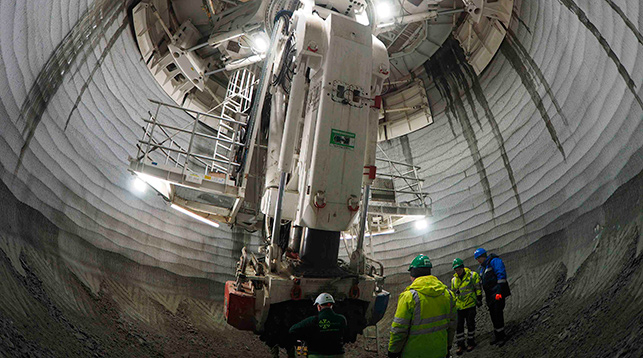Slavkaliy has extracted the first layer of potash rock salt during construction of its Nezhinsky mine in Belarus. Shafting is being carried out mechanically using shaft boring roadheader (SBR) machines manufactured in Germany. The technology does not require the use of explosives and is environmentally friendly. In July 2019, when the SBR machines Ulyana (cage shaft) and Olga (skip shaft) machines passed a section with aquifers to reach 327 m below the surface, a tubing column was installed. In January 2020, work to ensure the stable fastening of mine shafts was successfully completed and the SBR mechanised complexes resumed work. Tunnelling is currently taking place at up to 5.3 m/d. Slavkaliy expects a capacity of up to 2 million tpy of potash upon completion of construction.
Incitec Pivot (IPL) has concluded a strategic review of its fertilizers business and has decided to retain the business. In September 2019, IPL commenced the strategic review of the Incitec Pivot Fertilisers business with three possible outcomes envisaged – sale, demerger, or retain and invest. IPL has ceased discussion with potential buyers under the sale option, following a formal process to explore market interest. A careful assessment of a potential demerger was also undertaken. IPL has concluded, given the extraordinary market uncertainty and travel restrictions caused by the Covid-19 pandemic, that the right outcome for its shareholders is for the company to retain Incitec Pivot Fertilisers and focus on the supply of fertilizers and services to Australian agriculture. Covid-19 has not had a significant impact on IPL’s business operations to date. IPL has made appropriate operational adjustments to enable continued safe operation while addressing the risks and restrictions associated with Covid-19.
Uralkali has launched the commercial operation of a digital system for monitoring the condition of production equipment via mobile inspections. The technology was piloted at the Berezniki-4 plant in Russia’s Perm region, and the system is now being introduced across all of the company’s plants. Mobile inspections enable technical staff at the company’s processing plants to monitor the technical condition of equipment on a shift basis, using smartphones and portable vibration meters that can also measure temperature. Once the data has been gathered, further analysis of the vibration and temperature levels at production equipment units can be carried out using SafePlant software; based on a corporate information system, the company has developed a specific module for recording defects and issuing repair orders in accordance with the results of the mobile inspections. This system has made it possible to centralise information on the technical condition of equipment in a single database, control the frequency and quality of inspections, and improve the completeness of equipment condition data and the speed of response to malfunctions.




